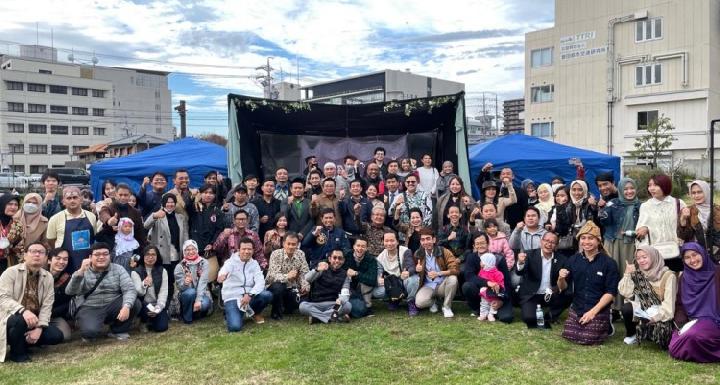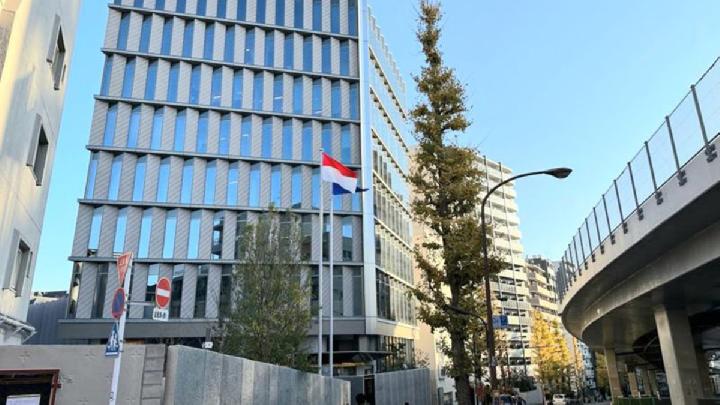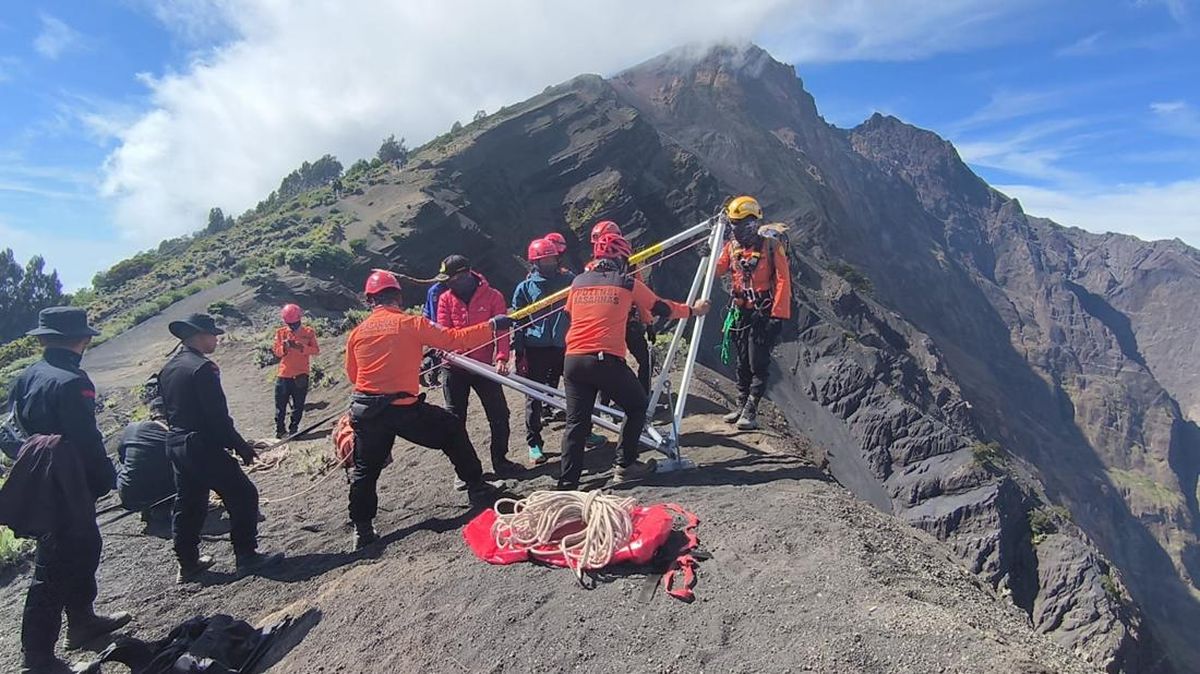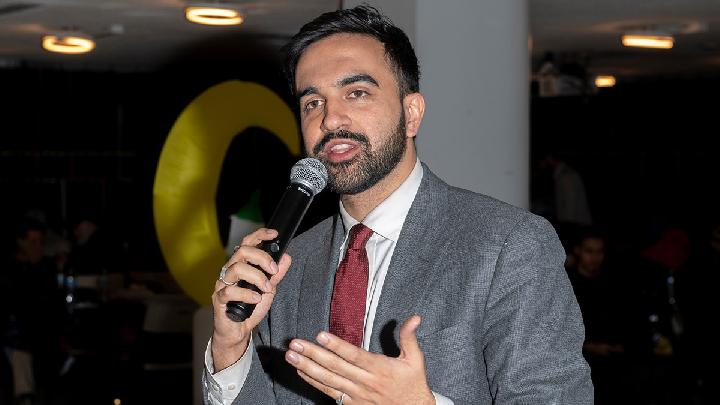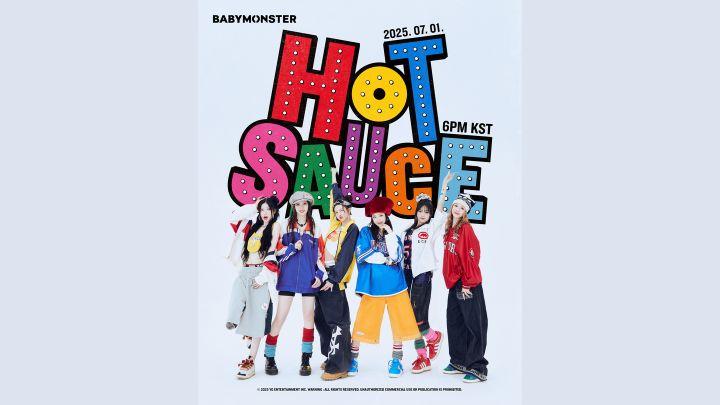NRL bosses are currently finalising a shortlist of names for the Papua New Guinea side, who are set to enter footy's top-flight in 2028.
While a number of logistical matters are still to be finalised regarding the franchise's entrance to the league, Australian Rugby League Commission chairman Peter V'landys has revealed that a suggestion has been made to call the new side the 'PNG Angels'.
That nickname is still to be finalised, with league chiefs considering multiple other options too.
'I don’t know what the team name will be at this stage,' V’landys said, according to The Courier Mail.
'There has been a suggestion for the team to be called the PNG Angels.
'I’ve had one very creative person suggest that nickname because of PNG’s history with Australia and it’s not a bad idea, but there will be a number of options considered.'
ARLC boss Peter V'landys has revealed that league chiefs have been considering several names for the NRL's newest franchise in Papua New Guinea and said the 'PNG Angels' had been suggested
The new franchise is set to enter the NRL during the 2028 season, and the league are still working through logistics to set up the new franchise (pictured, Xavier Coates, who was born in PNG and has previously represented the PNG Kumuls)
But the name, the 'PNG Angels', could leave the league open to some accusations of racism.
PNG's men's national side are called the Kumuls, while the country's women's national team are called the Orchids.
The nickname the 'PNG Angels' is understood to honour and reference the Papua New Guinean citizens who gave aid to Australia's soldiers during the Kokoda Campaign during World War II's Pacific Theatre.
Australian soldiers had 'affectionately' called the Papua New Guineans the 'Fuzzy Wuzzy Angels' during the conflict.
According to The Australian War Memorial, the name appeared to gain prominence in 1942 when Sapper Bert Beros of the 7th Division Royal Australian Engineers wrote a poem called the 'Fuzzy Wuzzy Angels'. The piece of literacy paid tribute to PNG citizens as heroes who had assisted Australia in the war effort.
Many PNG citizens involved in the conflict brought supplies to the battlefield and carried injured or sick troops away from the conflict.
The poem was published and picked up by multiple Australian news outlets, with the work said to have encapsulated much of the affection that many Australian soldiers felt towards the Papuans.
A famous image was later released by the Australian Department for Information photographer, George Silk, who took a now-historic picture of a blinded Australian soldier, Private George Whittington being led to a hospital by carrier Raphael Oimbari. The image has been republished many times over the last century, to pay homage to the Papuans and their service during the campaign.
However, the Australian War Memorial reports that there are 'some contradictions around the history of the conditions and treatment, perceptions and attitudes and remembrance and recognition of the Papuan carriers of the Second World War.'
One of the most famous images taken during the Kokoda Campaign shows Private George Whittington (left) being led to a hospital by carrier Raphael Oimbari (right). Australian soldiers had 'affectionately' termed PNG citizens who assisted Australia during the war the 'Fuzzy Wuzzy Angels'
V'landys (right) with NRL CEO Andrew Abdo (left) said that other names were also still being considered
'Evidence of mistreatment, poor conditions, and conscription of labour present a contrasting story of some Papuans’ experiences as carriers.'
It adds that some Papua New Guineans have 'mixed feelings about the alleged disregard of such issues by both the Australian and Papua New Guinean governments.'
The War Memorial highlights that many carriers were not referred to by name, but by terms that would now be considered racist today. It also notes that Raphael Oimbari's identity was not realised until 1972.
'The colonial constructs through which the carriers have been viewed has led to their war stories becoming mystified and the carriers themselves nameless. Rarely are carriers specified by name but rather by generic terms we would now consider racist.'
'In particular, Karl James argues that the term “natives” used by Australians during the war period had “clear implications of white authority and colonial values” in the relationship between Australians and Papuans.'
Other scholars have also questioned the use of the term the 'Fuzzy Wuzzy Angels', including Dr Erika Smith and Dr Ingrid Mattews, who published an article on the University of NSW's website that reads: 'The phrase "Fuzzy Wuzzy Angels" is far from affectionate - it reflects 500 years of racism.'

 3 months ago
42
3 months ago
42






























